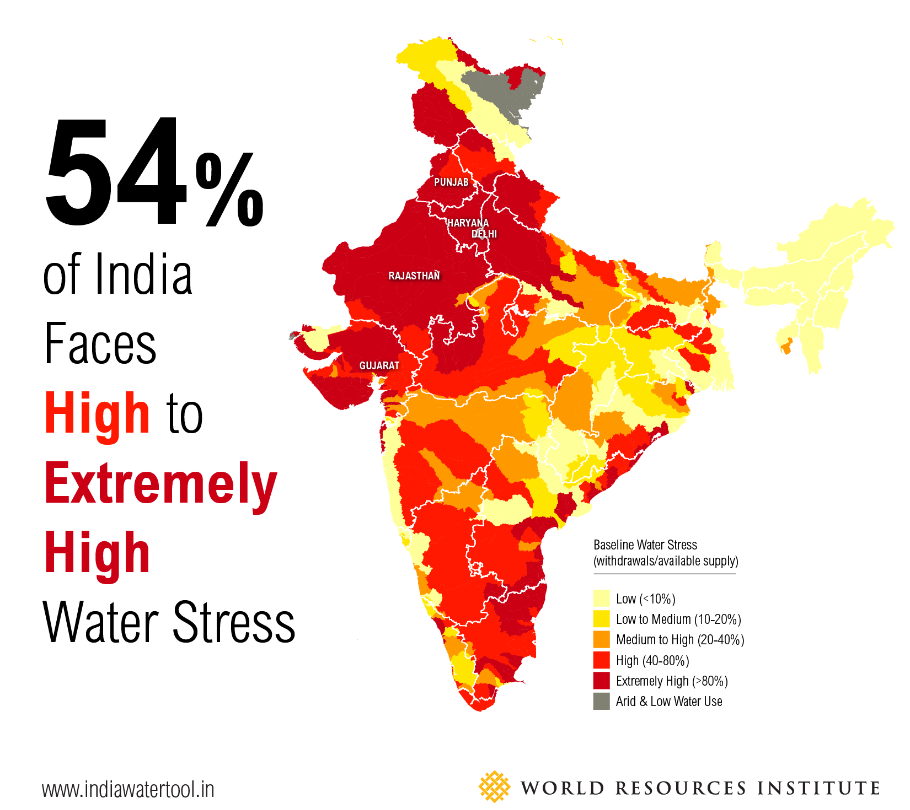UPSC CURRENT AFFAIRS – 24th March 2025
How to bridge the increasing water gap in India?

Why in News?
India faces severe water stress due to climate change, with rising water gaps under future warming scenarios, making wastewater reuse and a circular economy approach essential for sustainable water management.
Introduction
India is projected to face severe water shortages due to rising global temperatures, with increasing water gaps under different warming scenarios. According to climate projections:
- A 1.5°C rise in temperature will lead to an additional 11.1 km³/year water gap.
- A 3°C warming scenario will further increase this deficit to 17.2 km³/year.
The Ganga-Brahmaputra (56.1 km³/year) and Sabarmati (52.6 km³/year) basins already experience the highest water gaps under baseline climate conditions. This highlights the urgent need for sustainable water management strategies to address the growing crisis.
Projected Water Stress in India
- Climate Change Impact: Rising temperatures lead to increased evaporation, altered rainfall patterns, and declining groundwater levels, exacerbating water shortages.
- Regional Water Gaps: Major river basins such as the Ganga-Brahmaputra and Sabarmati are expected to experience worsening water deficits, putting stress on agriculture, industry, and domestic water supply.
- Growing Demand vs. Limited Supply: With rapid urbanization, industrial expansion, and population growth, India’s water demand is increasing, while climate variability is reducing water availability.
Wastewater Reuse: A Circular Economy Approach
The Centre for Science and Environment’s (CSE) December 2024 report, ‘Waste to Worth’, emphasizes wastewater reuse as a sustainable solution to bridge India’s widening water gap.
Key Strategies for Wastewater Management
- Treatment and Reuse: Recycling wastewater for agriculture, industry, and urban non-potable uses can reduce freshwater demand.
- Decentralized Wastewater Systems: Promoting localized sewage treatment plants to treat and reuse water efficiently.
- Urban Water Recycling: Implementing rainwater harvesting and greywater recycling in urban infrastructure.
- Industrial Water Conservation: Encouraging industries to adopt zero-liquid discharge (ZLD) systems to minimize wastewater generation.
The circular economy approach ensures that water is reused, conserved, and sustainably managed, reducing dependence on freshwater sources.
Way Forward: Sustainable Water Management in India
To address the looming water crisis, India needs a multi-pronged strategy that integrates:
- Climate-Resilient Water Policies – Strengthening water conservation efforts through policy interventions and efficient governance.
- Technological Innovations – Expanding wastewater treatment facilities, desalination plants, and smart irrigation techniques.
- Community Participation – Encouraging local water conservation initiatives, such as water budgeting and watershed management.
- Interstate Water Management – Promoting cooperative water-sharing frameworks to manage inter-basin water stress.
Conclusion
India’s water security is increasingly at risk due to climate change, rising demand, and inefficient water use. With projected water gaps worsening under future warming scenarios, sustainable water management and wastewater reuse must be prioritized. The circular economy approach, as highlighted in the CSE’s ‘Waste to Worth’ report, offers a viable pathway to mitigate water stress, ensuring long-term resilience and sustainability in India’s water sector.
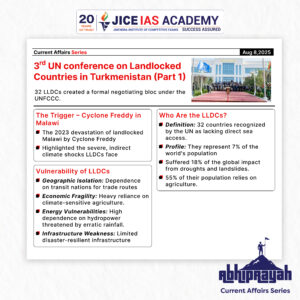
3rd UN conference on landlocked countries
UPSC CURRENT AFFAIRS – 08th August 2025 Home / 3rd UN conference on landlocked countries Why in News? At the
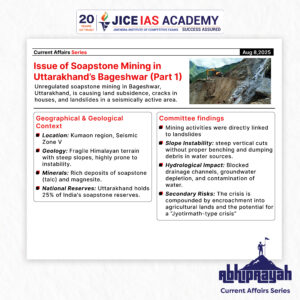
Issue of soapstone mining in Uttarakhand’s Bageshwar
UPSC CURRENT AFFAIRS – 08th August 2025 Home / Issue of soapstone mining in Uttarakhand’s Bageshwar Why in News? Unregulated
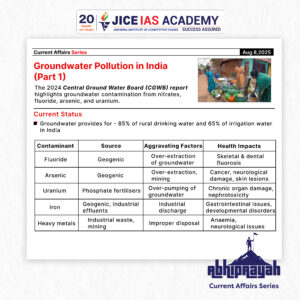
Groundwater Pollution in India – A Silent Public Health Emergency
UPSC CURRENT AFFAIRS – 08th August 2025 Home / Groundwater Pollution in India – A Silent Public Health Emergency Why
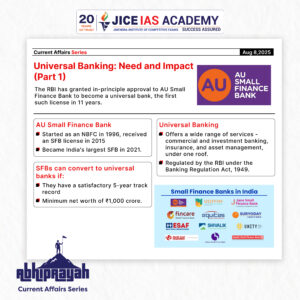
Universal banking- need and impact
UPSC CURRENT AFFAIRS – 08th August 2025 Home / Universal banking- need and impact Why in News? The Reserve Bank
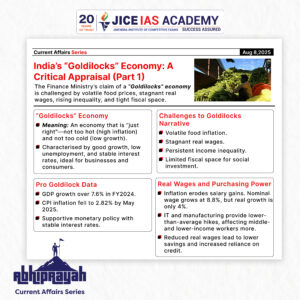
India’s “Goldilocks” Economy: A Critical Appraisal
UPSC CURRENT AFFAIRS – 08th August 2025 Home / India’s “Goldilocks” Economy: A Critical Appraisal Why in News? The Finance
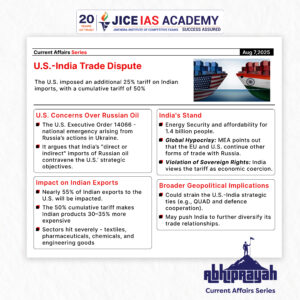
U.S.-India Trade Dispute: Trump’s 50% Tariffs and India’s Oil Imports from Russia
UPSC CURRENT AFFAIRS – 07th August 2025 Home / U.S.-India Trade Dispute: Trump’s 50% Tariffs and India’s Oil Imports from
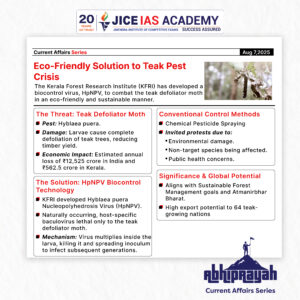
Eco-Friendly Solution to Teak Pest Crisis: KFRI’s HpNPV Technology
UPSC CURRENT AFFAIRS – 07th August 2025 Home / Eco-Friendly Solution to Teak Pest Crisis: KFRI’s HpNPV Technology Why in
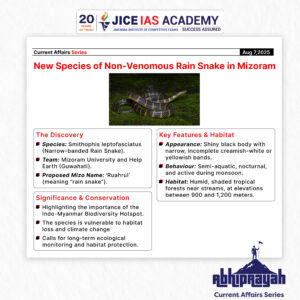
New Species of Non-Venomous Rain Snake Discovered in Mizoram
UPSC CURRENT AFFAIRS – 07th August 2025 Home / New Species of Non-Venomous Rain Snake Discovered in Mizoram Why in

